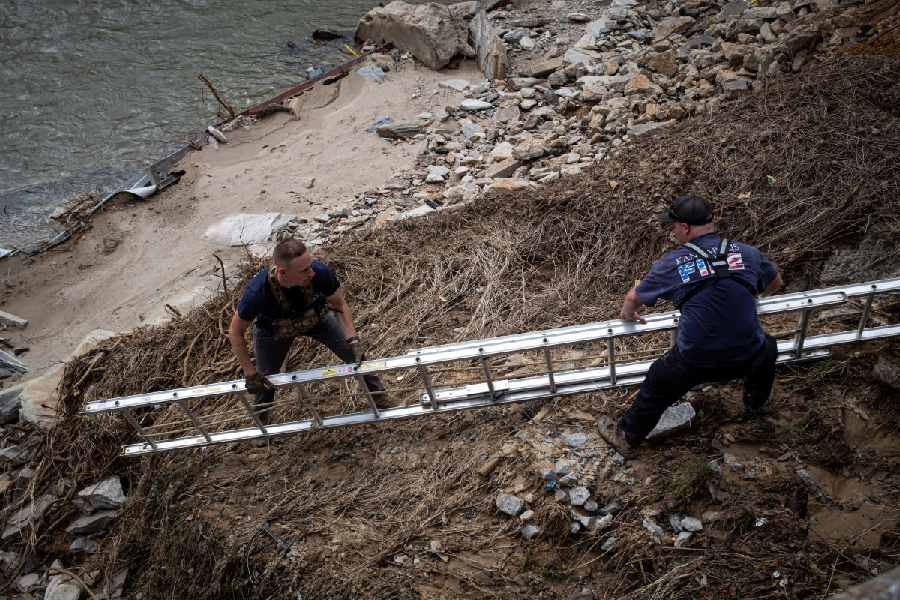North Carolina will resume search and rescue operations on Tuesday, intent on delivering aid and making contact with hundreds of people cut off by washed-out roads and damaged cellphone towers in the wake of Helene.
The storm killed more than 100 people across North Carolina, South Carolina, Georgia, Florida, Tennessee and Virginia, and the death toll is expected to rise once rescue teams reach isolated towns and telecommunications are restored.
"There are a lot of people hurting. When you don't have power, when you don't have cell phone service, when you don't have water, this is a catastrophic situation for you," North Carolina Governor Roy Cooper told MSNBC on Monday night.
"Some of our communities are completely wiped out," Cooper said.
The state was coordinating 92 search and rescue teams from 20 states and the U.S. government, Cooper said. Most efforts were in the western part of the state where the storm ripped up roads, leveled trees and tossed homes about.
On Monday emergency workers delivered a million litres of water, 600,000 meals and hundreds of pallets of airlifted supplies, he said.
In North Carolina, some 300 roads were closed and more than 7,000 people have registered for U.S. Federal Emergency Management Agency assistance, officials said on Monday. The National Guard was flying 1,000 tons of food and water to remote areas by plane and helicopter, they added.
Helene was a hurricane when it slammed into the Florida Gulf coast on Thursday, tearing a destructive path through southeastern states for days on end.
Nearly 1.8 million homes and businesses in seven states from Florida to Ohio remained without power on Monday night, according to the website Poweroutage.us, including 643,000 in South Carolina and 480,000 in Georgia.
Georgia Governor Brian Kemp said on Monday at least 25 people in his state had died. South Carolina reported at least 29 dead.
CNN put the national death toll at 128, citing state and local officials, including 56 in North Carolina.
In North Carolina's mountainous Buncombe County, which includes the tourist destination of Asheville, 40 people have died, the county manager said at a news briefing.
John Templeton, 46, evacuated with his family from Asheville on Saturday, a familiar exercise after having evacuated Houston during Hurricane Harvey in 2017 and performing relief work in 2005 in the Hurricane Katrina disaster zone in Gulfport, Mississippi.
"I'm pretty familiar with disaster zones and this is worse than any I've seen before," he said, speaking from the town of Fairview about 10 miles (16 km) southeast of Asheville.
As Templeton left on the only accessible road out of Asheville he passed a convoy of National Guard vehicles and water trucks coming the other way.
"It was a sinking feeling in my stomach because I knew that everybody still there just had no idea what the coming suffering and misery would look like," he said.
President Joe Biden said he would visit North Carolina on Wednesday and Georgia and Florida soon after. He may also ask Congress to return to Washington for a special session to pass supplemental aid funding.












